-
About
- About Listly
- Community & Support
- Howto
- Chrome Extension
- Bookmarklet
- WordPress Plugin
- Listly Premium
- Privacy
- Terms
- DMCA Copyright
- © 2010-2025 Boomy Labs

 Michelle Sharma
Michelle Sharma
Listly by Michelle Sharma
Dr. Swati Sinkar is a leading Paediatric Eye Specialist and Ophthalmologist in South Australia. A highly experienced ophthalmologist, she is renowned for providing exceptional levels of patient-focused care. She provides a variety of eye related treatment and consultant services that include cataract surgery, pterygium, infected eyelid, glaucoma and strabismus treatment.

Amblyopia, also know as 'lazy eye', affects around 2% of Australian children of pre-school age. It can affect children of any age, teens, and adults too. It occurs when the brain doesn’t fully recognise the pictures it’s receiving from one eye, so becomes more reliant on the opposite eye. One eye becomes stronger, and therefore the other becomes weaker, or “lazy”.

Known as age-related macular degeneration (AMD), this is a group of degenerative eye diseases that severely impacts on vision. If you are over 50 years of age, an early detection is essential and we strongly recommended that you have an eye examination with your local Ophthalmologist regularly.
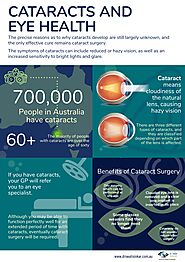
Cataracts are a leading cause of vision impairment in Australia. Approx 31 per cent of the Australian population over the age of 55 has a cataract. Although cataracts are most common due to ageing and so it affects older people, cataracts in children do occur.
While adults can sometimes avoid cataract surgery, it can be more urgent in the case of children. This is often because a child’s brain is developing, and so untreated cataracts can have a permanent deleterious affect on their vision. In such cases it is recommended to go see an eye specialist for kids specialising in paediatric cataract surgery.
Dr Swati Sinkar is a leading general and Paediatric ophthalmologist who specialises in cataracts treatment, including cataracts in children. If you would like more advice on recovering from cataract surgery, get in touch with Dr Swati today.

Cataract eye surgery is a minimally invasive procedure that is used to correct vision problems that ensue when the clear lens of the eye becomes clouded.
The procedure is usually performed as day surgery under local anaesthetic, and involves the clouded eye lens being removed and then replaced with a new, clear lens.
The procedure today is relatively common and straightforward, and may also correct some other conditions at the same time. If both eyes need to be operated on, they will generally be done separately, several months apart.
Most patients will have improved vision immediately, with some glasses wearers finding that they are no longer required. Recovering from cataract surgery may take between 4 to 6 weeks, but most people can resume normal activities within a few days, provided they follow these five tips for recovery:
Dr Swati Sinkar is a leading paediatric ophthalmologist who specialises in cataracts treatment, including cataracts in children. If you need more advice on recovering from cataract surgery, get in touch with Dr Swati today.
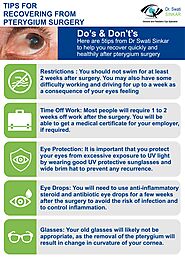
A pterygium is a growth on the clear membrane that covers the surface of the eye. It may not be accompanied by pain or other symptoms (and is not cancerous), but it can feel sore and irritated, or look red and inflamed.
Pterygia is most commonly caused by constant and excessive exposure to ultraviolet light from the sun, or dusty and windy environments. Most people requiring pterygium surgery are between 30 and 50 years of age.
Although it is possible that preventative measures — such as protecting your eyes from exposure to UV and sunlight can help to alleviate Pterygium, if it persists an eye specialist is likely to recommend a pterygium removal procedure.
After corrective eye surgery, to ensure you are back to full health as quickly as possible, you should follow these pterygium eye surgery recovery tips from Dr Swati Sinkar:
Restrictions: You should not swim for at least 2 weeks after surgery. You may also have some difficulty working and driving for up to a week as a consequence of your eyes feeling irritated and due to temporary double vision.
Time Off Work: Most people will require 1 to 2 weeks off work after the surgery. You will be able to get a medical certificate for your employer, if required.
Eye Protection: It is important that you protect your eyes from excessive exposure to UV light by wearing good UV protective sunglasses and wide brim hat to prevent any recurrence.
Eye Drops: You will need to use anti-inflammatory steroid and antibiotic eye drops for a few weeks after the surgery to avoid the risk of infection and to control inflammation.
Glasses: Your old glasses will likely not be appropriate, as the removal of the pterygium will result in change in curvature of your cornea.
For more guidance on pterygium removal, get in touch with one of the leading Adelaide Ophthalmologist Dr Swati Sinkar who can advise you on eye health and prevention of pterygium.
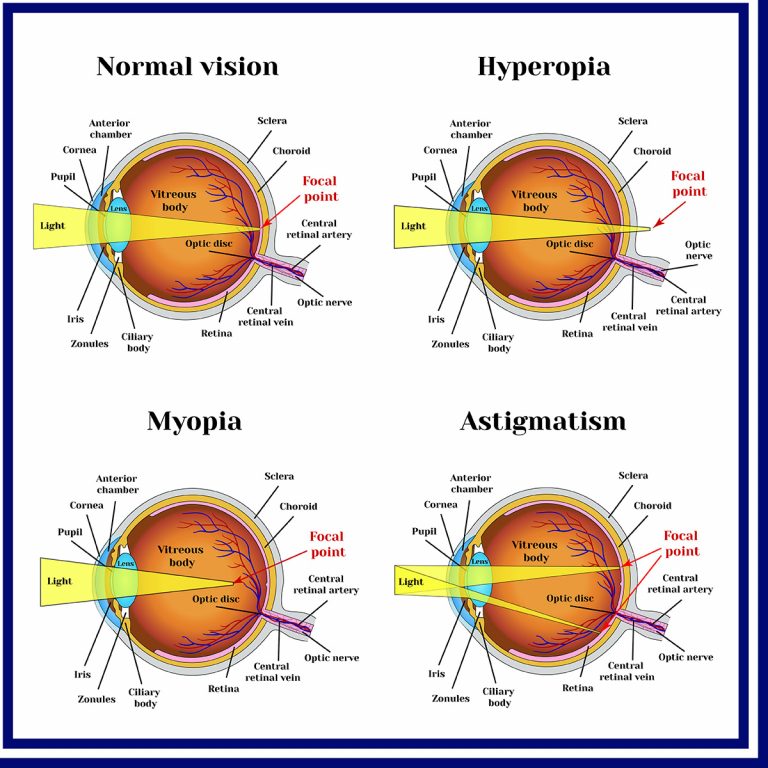
Refractive errors is the term for a range of vision problems where the shape of the eye makes it difficult to see clearly. Dr Swati Sinkar is an Adelaide Paediatric and General eye specialist treating all varieties of refractive errors, as well as amblyopia in children.

Conjunctivitis, more commonly referred to as pink eye, is caused when the thin clear tissue covering the white of the eye and lining the eyelid becomes inflamed. Dr Swati Sinkar is a Paediatric Ophthalmologist and eye specialist in Adelaide who treats all forms of pink eye and conjunctivitis in adults and children.
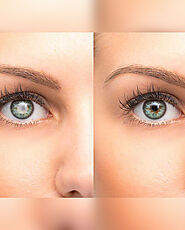
Cataract surgery is the removal of a clouded natural eye lens and replacement with a clear lens implant (known as an intraocular lens or IOL). Here are few tips on how to prepare for cataract surgery.
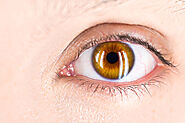
Cataracts in children do occur, despite the fact that they are most commonly the result of ageing and thus affect older people. Childhood cataracts are reported to affect 1 to 15 children out of every 10,000. The wide range is due to differences in populations, age groups, ascertainment methods, and case definitions. Congenital cataract affects 1 to 3 people out of every 10,000 in developed countries.
Learn more: Cataract Surgery
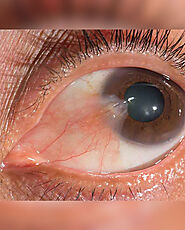
Wearing sunglasses and avoiding exposure to environmental factors such as sunlight and UV rays as much as possible, as well as staying out of windy and dusty environments, can help to reduce or slow pterygium growth. In any case, limiting your exposure to wind, dust, pollen, smoke, and sunlight can help to slow the growth of pterygium. For more information on pterygium removal, contact Dr Swati Sinkar, a leading Adelaide local ophthalmologist who can advise you on eye care health and pterygium prevention.
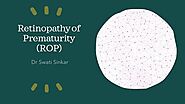
Retinopathy of prematurity (ROP) is an eye disorder caused by abnormal blood vessel growth in the light-sensitive region of the eyes of premature infants (retina). Dr. Swati Sinkar is in charge of screening premature babies for the eye condition retinopathy of prematurity in South Australia's northern suburbs. Contact Dr Swati Sinkar
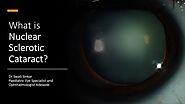
This is the most common type of cataract, affecting the central part of the eye lens (known as the nucleus), and can cause the lens to harden and turn yellow. Although a nuclear sclerotic cataract can cause a temporary improvement in close-up vision due to changes in the eye's ability to focus, overall vision quality will deteriorate over time. Visit Dr Swati Sinkar cataract surgeon for more information.
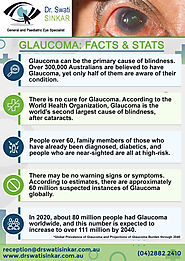
Dr. Swati Sinkar provides glaucoma treatment in Adelaide. If you are experiencing any of the symptoms of glaucoma or are experiencing any type of vision loss, schedule an appointment with Dr Swati's consulting rooms in North Adelaide as soon as possible.enter link description here

Strabismus, also known as squint or crossed eyes, is a condition in which a person's eyes do not point in the same direction. The condition means that both eyes are unable to focus on an object at the same time. Dr Swati is a strabismus specialist in Adelaide who can tell you more about this eye problem.

Digital Eye Strain occurs when your eyes are needed to focus for extended periods of time, such as when watching TV, driving, reading, or gazing at your phone or computer screen. Prolonged screen time reduces blink rate, resulting in dry eyes, which can add to eye strain.
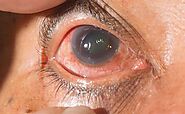
Glaucoma is a series of illnesses affecting the visual nerves. It has an effect on your peripheral vision and, in the worst-case situation, can result in complete and irreversible vision loss. Glaucoma is the 3rd leading cause of blindness worldwide. Dr. Swati Sinkar provides glaucoma treatment in Adelaide. If you are experiencing any of the symptoms of glaucoma or are experiencing any type of vision loss, schedule an appointment with Dr Swati's consulting rooms in North Adelaide as soon as possible.
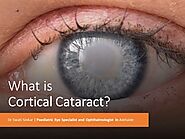
Cortical cataracts are a type of cataract that begins at the lens's margins and progresses towards the centre in a spoke-like pattern. Cortical cataracts form on the borders of the lens, hence the name cortical cataracts. If you have cataracts, you can visit Dr Swati and undergo cataract surgery to have them removed. Consult Dr Swati Sinkar - cataract surgeon in Adelaide for more information.

Retinopathy of Prematurity is a condition associated with abnormal retinal vascular development in babies born at/before 30 weeks of gestation.
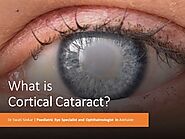
Cortical cataracts are a type of cataract that begins at the lens's margins and progresses towards the centre in a spoke-like pattern. Cortical cataracts form on the borders of the lens, hence the name cortical cataracts. If you have cataracts, you can visit Dr Swati and undergo cataract surgery to have them removed. Consult Dr Swati Sinkar cataract surgeon in Adelaide for more information.
